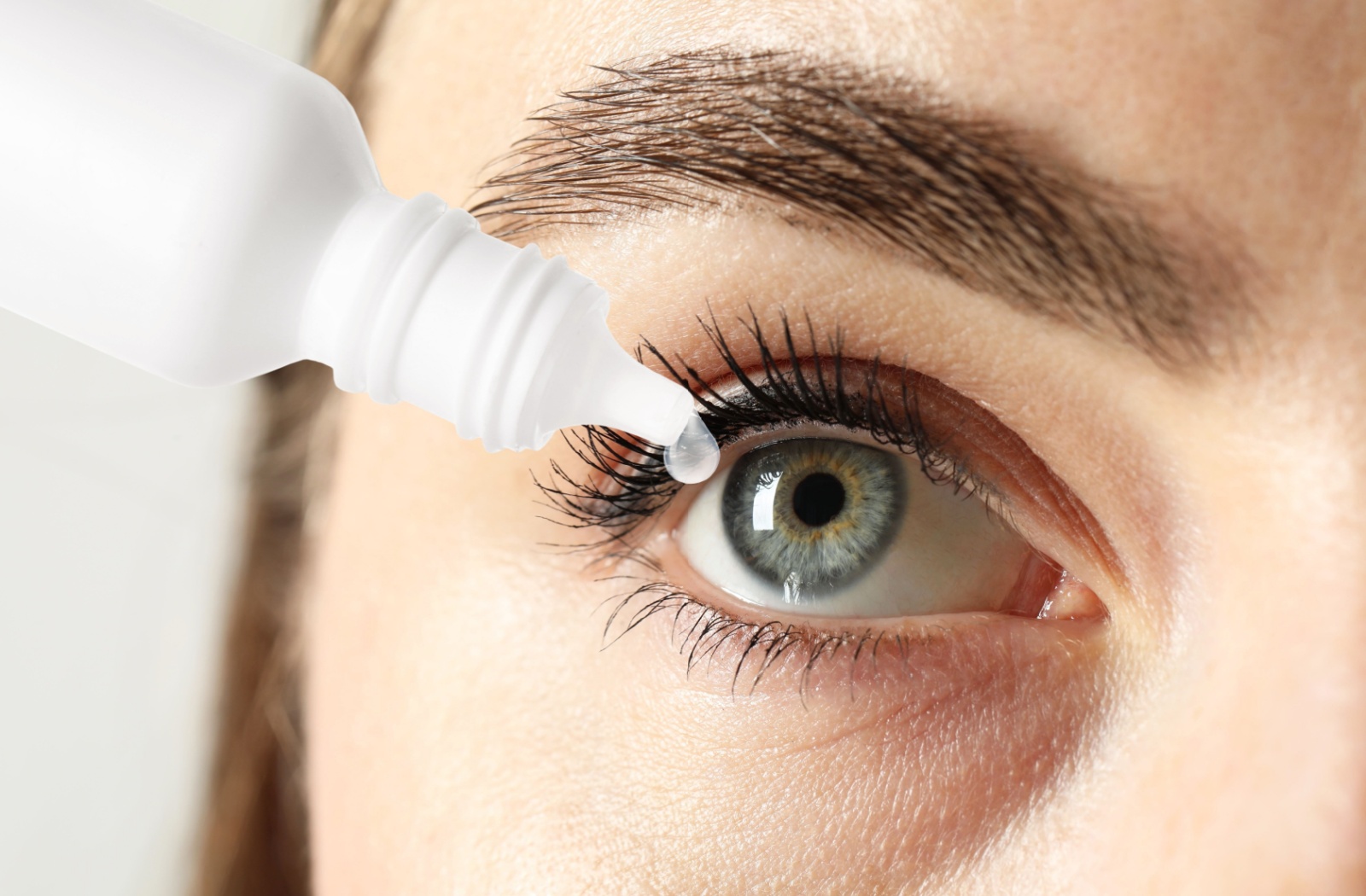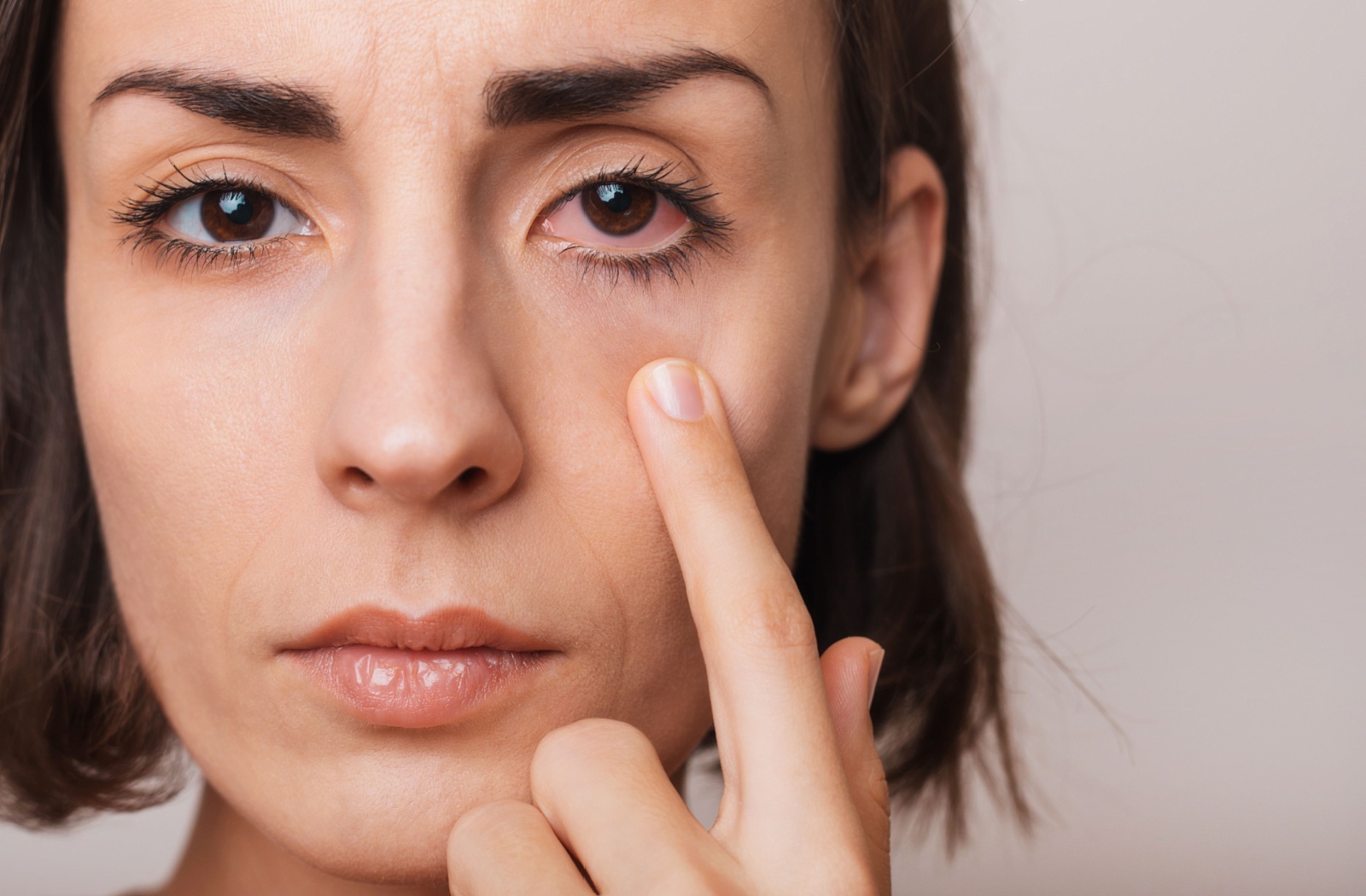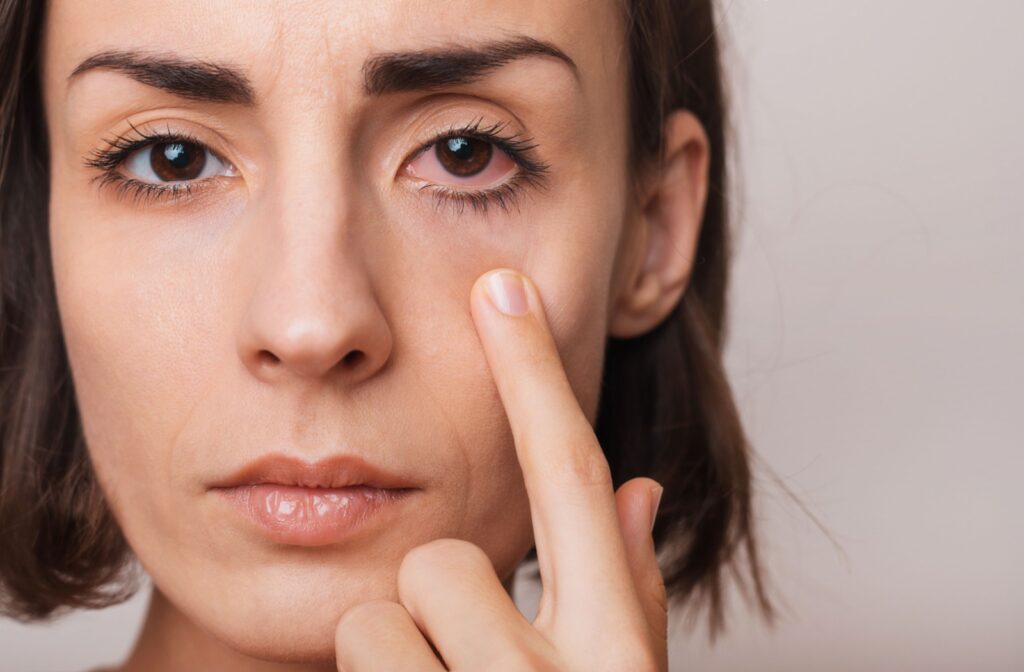Waking up with dry, gritty eyes isn’t just annoying—it can significantly impact your daily life. If you experience discomfort regularly, it may be a sign that something’s wrong.
Several factors can contribute to dry eyes in the morning, including poor tear production, environmental conditions, eye diseases, and prolonged screen time. Your optometrist can help determine the root cause of your dry eye symptoms and recommend suitable treatments.
What Causes Dry Eyes in the Morning?
Waking up with dry eyes is more than just an inconvenience. It’s often tied to environmental, behavioral, or medical factors. Here are some common culprits.
Insufficient Tear Production
Your eyes rely on tears to stay hydrated and protect against irritation. If your body doesn’t produce enough tears, your eyes can dry out while you sleep. This might be linked to conditions such as:
- Aging: Tear production naturally decreases as we grow older.
- Hormonal Changes: Especially common after menopause.
- Certain Medications: Antihistamines, decongestants, and even some antidepressants can reduce tear production.
Incomplete Eyelid Closure
If your eyelids don’t fully close while you sleep, a condition known as nocturnal lagophthalmos, your eyes can be exposed to air, leading to dryness. People with lagophthalmos may experience symptoms like:
- Red eyes
- Eye irritation
- Sensitivity to light
Environmental & Room Conditions
Sometimes, the answer lies in your sleep environment. Dry air from air conditioners, heaters, or fans can impact your eyes overnight. Additionally, allergens like dust mites or pet dander in your bedding can cause irritation while you rest.
Prolonged Screen Time
If you spend your evenings in front of screens, your eyes are likely blinking less. This reduces tear production, leaving your eyes irritated and dehydrated by morning.
Eye Conditions & Diseases
Underlying conditions, such as blepharitis (eyelid inflammation), meibomian gland dysfunction (MGD), or Sjӧgren’s syndrome, might also be to blame. These conditions disrupt the production and maintenance of healthy tears, causing chronic dryness.
How Dry Eyes Impact Your Sleep Quality
You might think of dry eyes as a standalone issue, but they can directly impact your ability to enjoy high-quality sleep. Dryness can make it difficult to fall asleep, and the discomfort can even wake you up in the middle of the night.
Constant rubbing, redness, or even mild pain can disturb your sleep cycles, leaving you exhausted in the morning.
Additionally, poor-quality sleep caused by discomfort can lead to a vicious cycle. A lack of restorative rest can exacerbate dry eye symptoms over time by increasing stress hormones and disrupting tear production.

Simple Steps to Prevent Morning Dry Eyes
Targeted strategies can make a world of difference. Here’s how you can combat morning dry eyes and enjoy restful sleep.
Hydrate Your Eyes Before Bed
Use preservative-free artificial tears right before sleeping to keep your eyes moist overnight. These drops can help maintain the tear film and prevent dryness while you rest.
Invest in a Humidifier
A bedroom humidifier can add moisture to the air, countering the drying effects of heaters or air conditioning. This is especially useful in winter months when indoor air tends to be drier.
Use an Eye Mask
Moisture-sealing eye masks or shields can provide a protective barrier, ensuring your eyes stay hydrated throughout the night. They’re particularly helpful for people with nocturnal lagophthalmos.
Take Screen Breaks Before Sleep
To reduce strain on your eyes, avoid screens at least an hour before bedtime. This helps your tear production normalize and gives your eyes a break from harsh blue light, which can also interfere with your natural sleep cycle.
Clean Your Eyelids
Follow a nightly eyelid hygiene routine to remove debris, bacteria, and excess oils. This can help prevent conditions like blepharitis or meibomian gland dysfunction, which contribute to dry eyes. Use a gentle cleanser or pre-moistened eyelid wipes for better results.
Try Omega-3 Supplements
Omega-3 fatty acids can support healthier tear production by reducing inflammation. Include them in your diet through fatty fish like salmon, or take supplements specifically designed for eye health.
Consult Your Optometrist
If your symptoms persist despite trying these remedies, it’s important to see your eye doctor. They can identify underlying conditions and recommend targeted treatments.
Should You Be Concerned About Morning Dry Eyes?
Occasional dry eyes in the morning aren’t typically a cause for alarm and often improve with simple changes. However, chronic symptoms may signal a larger issue that needs professional attention. Be aware of the following warning signs:
- Persistent redness or irritation
- Blurry vision that doesn’t resolve after blinking
- Sensitivity to light
- A gritty or scratchy sensation
If you experience these symptoms regularly, book an appointment with your optometrist to determine a proper treatment plan.
Wake Up Refreshed, Not Irritated
Morning dry eyes can be a frustrating start to your day, but they don’t have to be. By identifying the underlying causes and implementing practical remedies, you can protect your eyes and enjoy more restful sleep.
Remember, your eye health is worth prioritizing. Don’t ignore ongoing discomfort, it might just be your body’s way of telling you that something needs a closer look.
If you’re unsure where to start or need expert advice on managing dry eyes, contact The Eye Avenue today. Our team can provide guidance tailored to your specific needs, helping you wake up with clear, comfortable vision!




